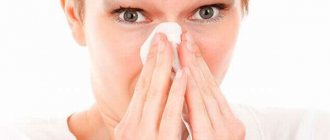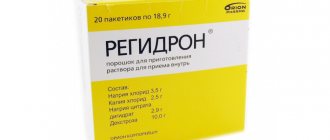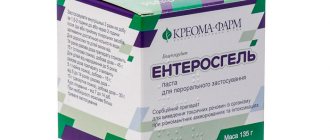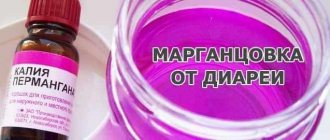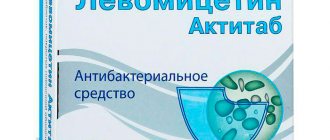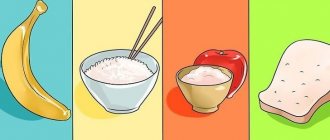Of course, the best medicine is laughter, but not for diarrhea! Therefore, against bear disease, it is necessary to use anti-diarrhea tablets. But which ones to choose, what is best to take and which remedies help quickly? Of course, the best option is to contact a gastroenterologist and buy available medications at the pharmacy as prescribed. But what if you need to take tablets (capsules) immediately? Then a list of effective pills will come to the rescue. Which ones - this is discussed in detail in the article.
Features of treatment
It is not recommended to stop diarrhea and vomiting immediately. After all, with their help, the body is freed from toxins and poisons. Therefore, it is recommended to speed up this process. To do this, you need to drink as much liquid as possible, and in case of severe poisoning, you need to rinse your stomach. If poisoning develops without fever or severe abdominal pain, you can try to cope with it yourself.
Immediately after the first symptoms appear, it is recommended to remain in bed. In this case, you need to stop eating. But you need to drink as much liquid as possible to flush the digestive tract and replenish its losses. Instead of water, you can drink still mineral water, a decoction of dried fruits, sweetened water or green tea. In addition, you need to take activated carbon at the rate of 1 tablet per 10 kg of the patient’s weight. The drugs Polysorb or Polyphepan also have a similar effect.
You can take Smecta, which is good for getting rid of toxins and stopping diarrhea. Other medications should be prescribed by your doctor. Therefore, if these measures do not help stop vomiting and diarrhea or the condition worsens, you should seek medical help.
This approach to overcoming diarrhea is only suitable for adults. If such symptoms appear in a child, it is better to immediately consult a doctor, since children develop dehydration very quickly, and serious infectious diseases can be almost asymptomatic.
Causes of diarrhea in children and adults
Diarrhea occurs:
- acute;
- chronic.
Causes of acute diarrhea:
- An infectious cause associated with people’s neglect of hygiene: they do not wash their hands before eating, use shared utensils, do not wash vegetables and fruits before eating;
- bacterial infections;
- parasites and fungi.
- alcohol, drugs, poor quality food;
Causes of chronic diarrhea:
- Problems with the stomach. As one of the manifestations of various gastritis.
- Chronic pancreatitis.
- Obstruction of the bile ducts of the liver.
- Problems related to the functioning of the small intestine.
- Disturbances in the functioning of the large intestine, inflammatory processes in it.
- Irritable bowel syndrome.
- Ischemia of the small intestine.
Main groups of drugs
Food poisoning, accompanied by vomiting and diarrhea, is a fairly common occurrence. The modern lifestyle, when many people have to eat fast food on the go, the abundance of dyes and preservatives in food - all this becomes a common cause of disruption of the digestive tract. Therefore, many people know how to treat vomiting and diarrhea, since they often encounter this phenomenon.
There are several groups of drugs that are used to eliminate such symptoms. Although many of them are safe, using them on your own is not recommended. You need to know what the action of these drugs is aimed at in order not only to stop vomiting and diarrhea, but to eliminate their causes, as well as restore the normal functioning of the gastrointestinal tract. This pathology can be completely cured only with the help of complex therapy.
Typically, several medications are used for treatment:
- antispasmodics;
- adsorbents;
- enzyme preparations;
- antibiotics;
- antiemetics;
- medications to restore water-salt balance;
- probiotics or prebiotics;
- antidiarrheal drugs.
For diarrhea accompanied by vomiting, comprehensive treatment is necessary
All of these medications are sold without a doctor's prescription because they are considered safe. But you still shouldn’t self-medicate, because in serious cases they won’t help. Only a doctor can determine which treatment is suitable for the patient.
In addition to differences in mode of action, all drugs differ in the form of release. Most often medications come in tablets. But many products, such as probiotics, are more effective in capsule form. When vomiting, it is often impossible to swallow tablets, so many medications are available in solution or suspension. In the most severe cases, such drugs are administered by injection.
Sorbents
This is the main group of drugs for the treatment of most intestinal infections, poisoning, as well as many pathologies of the digestive system. These drugs contain substances that are not absorbed into the blood, but act in the intestinal lumen. They bind toxins and many poisons, prevent their absorption into the blood, and accelerate their elimination from the body.
The most common enterosorbent is activated carbon. It is effective against nausea and diarrhea caused by food poisoning. But its disadvantage is that you need to drink charcoal several tablets at a time, preferably not crushed ones. And this is not always possible in this state. The drugs Ultra-Adsorb, Carbactin, white coal, and Sorbex have a similar effect.
A more convenient and safe drug to use is Smecta. It can even be given to infants. This remedy binds toxins, poisons, and viruses that have entered the gastrointestinal tract. Smecta is effective for intestinal infections, food allergies, drug poisoning or spoiled food.
The drugs Filtrum Sti, Polysorb, Polyphepan have a similar effect. They contain substances of natural origin that effectively bind any toxins. Used for food or drug poisoning, alcohol intoxication. They quickly stop vomiting and eliminate diarrhea.
Recently, another effective enterosorbent, Enterosgel, has often been used. In addition to eliminating diarrhea and vomiting, it envelops the mucous membrane, therefore protecting it from irritation. Enterosgel absorbs and removes any toxins from the body.
Antiemetics
Although vomiting rids the body of toxins, if it occurs frequently, it is recommended to stop it. This condition exhausts the patient, leads to large losses of fluid and minerals, and makes treatment difficult. After all, a person cannot drink water or take medicine due to vomiting. Therefore, antiemetic drugs are used to alleviate the patient’s condition. Most often these are tablets Cerucal, Domperidone, Motilium, Metoclopramide.
Antidiarrheal
For diarrhea of non-infectious origin, you can use drugs that slow down intestinal motility. Thus they eliminate diarrhea. These drugs do not cure the pathology, but they help avoid debilitating diarrhea and dehydration. Most often, loperamide-based products are used for this purpose. These are Lopedium, Motilium, Imodium, Enterobene. They reduce intestinal motility and improve the tone of the anal sphincter.
Antimicrobial
If there is an intestinal infection, antimicrobial drugs are used. But they cannot be used without a doctor’s prescription, since they affect certain microorganisms. Most often, special intestinal antiseptics are used: Fthalazol, Sulgin, Intetrix or Enterofuril.
For serious infectious diseases caused by bacteria, other antibacterial agents may be prescribed: Levomycetin, Amoxicillin, Ciprofloxacin, Tetracycline.
Enzymes
Sometimes enzyme agents are used to eliminate nausea and vomiting caused by overeating or eating foods that are difficult to digest. Most often it is Pancreatin, Mezim, Creon or Festal. They can be used even by healthy people, since the concentration of enzymes in them is low.
Means for restoring microflora
How to drink chloramphenicol for diarrhea
For diarrhea and vomiting caused by a violation of the intestinal microflora, probiotics are used. They restore the balance of microflora in the intestines, helping to destroy pathogenic microorganisms. This leads to normalization of stool. This effect is explained by the content of bifidobacteria and lactobacilli in these preparations, which are necessary for the normal functioning of the intestines.
The most famous of the probiotics is Bifidumbacterin. It has been used for a long time in the treatment of all age groups of patients. Even infants can use this medicine. It is available in capsules, powder or ready-made solution containing live bifidobacteria. But recently other drugs have become more popular.
In this condition, it is important to restore the intestinal microflora
Herbal antidiarrheals
There are several plants whose antidiarrheal properties are well known in folk medicine. For ease of use, they are quite actively sold in pharmacies, and their affordable price and natural origin make these medicines one of the most popular and easiest to use. Among the herbal remedies for diarrhea, the following should be highlighted:
| A drug | Price | Description |
| Bird cherry fruits | from 50 rub. | Bird cherry fruits contain tannins, which have an effective astringent effect on the intestinal contents. Prescribed for diarrhea, which is caused by non-infectious conditions. |
| Blueberry | from 80 rub. | One of the most famous berries with an antidiarrheal effect in folk medicine. In addition to being an astringent, it also has antiseptic and anti-inflammatory effects. |
| Burnet root | from 50 rub. | This drug contains tannins, saponins and a number of vitamins, due to which burnet root slows down the motility of the gastrointestinal tract and has an astringent and antiseptic effect on the intestinal contents. |
| Pomegranate fruit | This is not a pharmaceutical drug. The fruit, familiar to everyone, is perhaps the most effective cure for diarrhea. Its peel contains elements with a fixing effect on the gastrointestinal tract. The pomegranate peel is dried and crushed, after which it is steamed at the rate of one teaspoon per liter of hot water. Children should be given this infusion one teaspoon three times a day, adults – two teaspoons three times a day. |
How to recognize a disease when there is vomiting and diarrhea: first aid, treatment
An unpleasant condition in which diarrhea occurs at the same time, as well as severe nausea, turning into vomiting, is familiar to almost every person. After all, it is not always possible to protect yourself from consuming low-quality products.
The presence of inflammatory diseases, which cause diarrhea and nausea, also does not immediately reveal itself. Despite the wide range of reasons for which this health problem occurs, you need to know the rules for providing assistance in the development of the main ones.
When is it necessary to visit a doctor?
The following situations require an immediate visit to the doctor:
- diarrhea manifested in an infant;
- diarrhea, which is accompanied by vomiting, high fever, severe pain in the abdominal area;
- bleeding from the anus during stool without pain;
- signs of the body losing a large amount of fluid (no urine for more than 5 hours, pain in the kidney area, dry mouth and thirst)
- diarrhea in people over 70 years of age;
- diarrhea in people with diseases of the cardiovascular system;
- diarrhea during pregnancy;
- the duration of the symptom is more than 4 days;
- food poisoning.
In case of severe diarrhea, you cannot self-medicate; you must immediately seek qualified help. You need to visit a therapist who, based on stool, blood and general urine tests, will make a diagnosis.
The patient may also be referred to the infectious diseases department or to a gastroenterologist, depending on the cause of diarrhea.
After determining the cause, the doctor prescribes treatment, including proper nutrition and effective medications.
Intestinal infection
Diarrhea and nausea in many cases are the result of intestinal damage from infectious diseases. In this case, the microflora may be affected by viral, bacterial or parasitic pathogens that inhibit the favorable environment. This affects the digestive processes, and without the correct response, the infection can spread in the body.
If in the early stages diarrhea and nausea can be eliminated quite easily with the competent intervention of a specialist, then in advanced stages it is quite difficult to identify the pathogen, since many complications are observed.
Phthalazole
A sulfanilamide drug is more indicated for infectious diarrhea (acute dysentery, exacerbations of its chronic form, colitis, enterocolitis of an infectious nature), so taking phthalazole for diarrhea caused by banal indigestion is not always rational. The effect of taking it begins to be observed only on days 2-3, which is explained by the suppression of the growth of pathogenic microflora in the intestines.
And although the drug has few side effects, its use is undesirable in patients with kidney problems, liver problems, hematopoietic disorders and hemophilia. During pregnancy, phthalazole can be prescribed when there is a risk of irreversible consequences for the woman, and in the first trimester it is strictly contraindicated.



